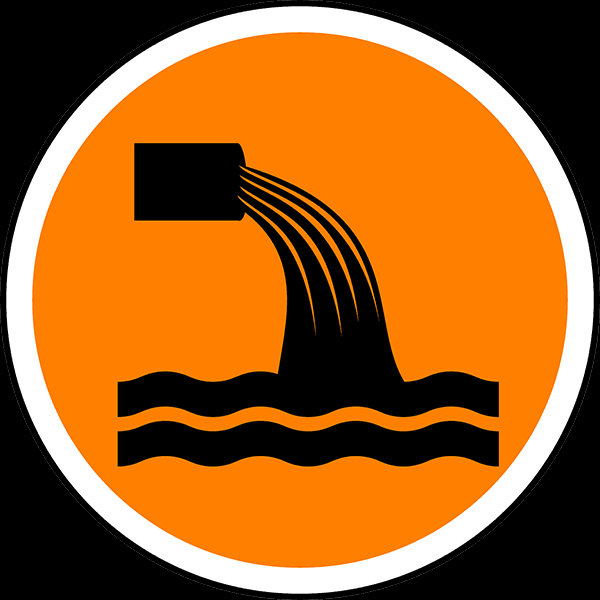The smart Trick of Reclaim Waste That Nobody is Discussing
The smart Trick of Reclaim Waste That Nobody is Discussing
Blog Article
Our Reclaim Waste Statements
Table of ContentsThe smart Trick of Reclaim Waste That Nobody is DiscussingReclaim Waste - The FactsFacts About Reclaim Waste UncoveredReclaim Waste - An OverviewThe Basic Principles Of Reclaim Waste A Biased View of Reclaim Waste

Never put hazardous compounds down sinks, commodes or stormwater drains Substances consisting of gas, oil, oil, chemicals and herbicides, and solvents such as paint pole dancers should not be poured down sinks, bathrooms or stormwater drains. These materials are difficult to eliminate in the sewage treatment process and trigger pollution issues in our neighborhood waterways.

Liquid waste is a term that covers a wide variety of products, there's a great factor why leaving its disposal to the specialists is recommended. Fluid waste is non-solid material that has no additional use and should be dealt with and thrown away according to local, state and federal laws.
About Reclaim Waste
Although instances of liquid waste can include wastewater, fats, oils or oil, used oil, fluids, solids, gases or sludges and dangerous house liquids, there are some that are thought about to be more harmful than others when it comes to the environment and the health and wellness of animals and human beings alike. It's because of this that each state and region have actually rigorous regulations connected to liquid waste management.
Liquid waste can be stored in holding storage tanks or packaged in drums, intermediate bulk containers or accepted little containers before either being treated or eliminated by means of outsourced vacuum vehicles. Given the nature of the materials, liquid waste can not go in the basic waste stream and there are stringent laws on how to deal with it correctly.
(https://triberr.com/reclaimwaste1)Relying on a resolution of the degree of threat, it might be needed to remediate those sites. In addition, dangerous liquid chemical wastes are regulated waste and must be tracked in accordance with the state waste regulation. Under the chain of guardianship and responsibilities, owners are responsible and responsible for waste produced by a company.
One of the core applications for superabsorbent polymers (SAPs) is liquid waste solidification. industrial wastewater treatment. SAPs are used by waste monitoring professionals to stop potentially damaging fluids from going into waterways, groundwater aquifers, and various other sensitive environments. Since fluids can quickly carry impurities right into ecological receptors and potentially add to geotechnical failings, liquid wastes are often banned from disposal in garbage dumps
The Single Strategy To Use For Reclaim Waste
Primarily, totally free fluids are liquids that separate from the strong portion of waste material. Fluid waste can other consist of the following: HDD mud and cuttings Garbage dump leachate Wastewater treatment sludge & biosolids Dredged sediments Oil and gas drill cuttings Settling pond filth Hydro Excavation slurry Coal combustion residuals/ash Tank bottom sludge Concrete grinding/polishing slurry Relevant Article: For a sensible example of free liquids separating from waste product, consider the following scenario: A waste monitoring professional lots a dump associate sludge from a wastewater treatment plant's oygenation container, during a routine upkeep occasion.
When the motorist arrives at the landfill, he notifications water leaching from the sludge and putting from the dump vehicle. The load was rejected by the landfill and the driver was required to take care of the waste as a fluid waste at a special center, which boosted the disposal fees greatly.
We also need to be responsible for the correct disposal of our waste products. It is not sufficient that we pay waste disposal companies to take treatment of our rubbish.
All About Reclaim Waste

Segregating your waste can begin inside the home. Set apart dry and liquid waste as well as edible waste, eco-friendly and non-biodegradable materials.
Layer the base with dirt to soak up the wet waste. Layer the compost with damp and completely dry waste as well as soil to keep a balance in between the damp and the completely dry.
An Unbiased View of Reclaim Waste
To assist in faster disintegration, you can likewise include semi composted dirt to the garden compost. If you observe the smell is coming to be also solid, add extra newspapers and paper waste or include even more openings to the garden compost bin to keep the balance of the waste materials.
We also need to be responsible for the correct disposal of our waste materials. It is not enough that we pay waste disposal business to take treatment of our rubbish.
Our waste, our obligation. Have you ever questioned what happens to your liquid waste after it's accumulated? Did you recognize that fluid waste can be recycled?
The Single Strategy To Use For Reclaim Waste
Segregating your waste can begin inside the home. Segregate dry and liquid waste as well as edible waste, naturally degradable and non-biodegradable products.
Layer the bottom with dirt to absorb the wet waste - industrial wastewater treatment. Layer the garden compost with wet and dry waste as well as dirt to maintain a balance in between the wet and the dry.
Cover the garden compost container. As soon as a week, include soil on top of the compost. To facilitate faster decomposition, you can additionally add semi composted dirt to the compost. Maintain the garden compost. If you discover the smell is becoming too solid, add added papers and paper waste or add even more openings to the garden compost bin to keep the equilibrium of the waste products.
Report this page